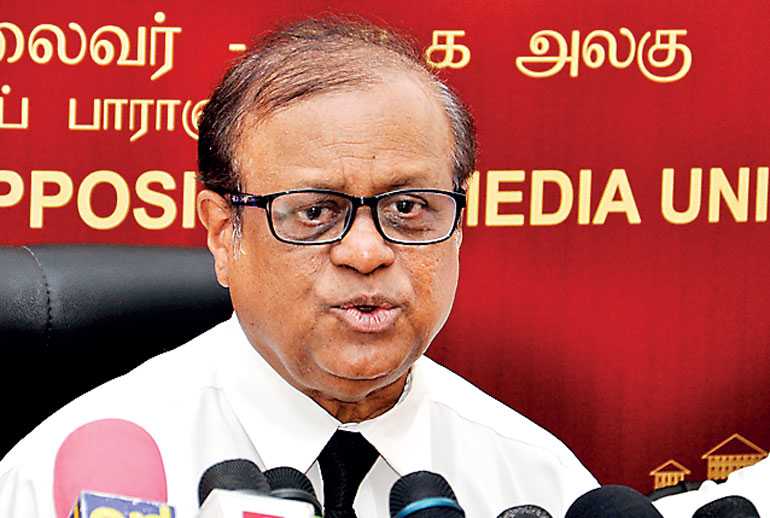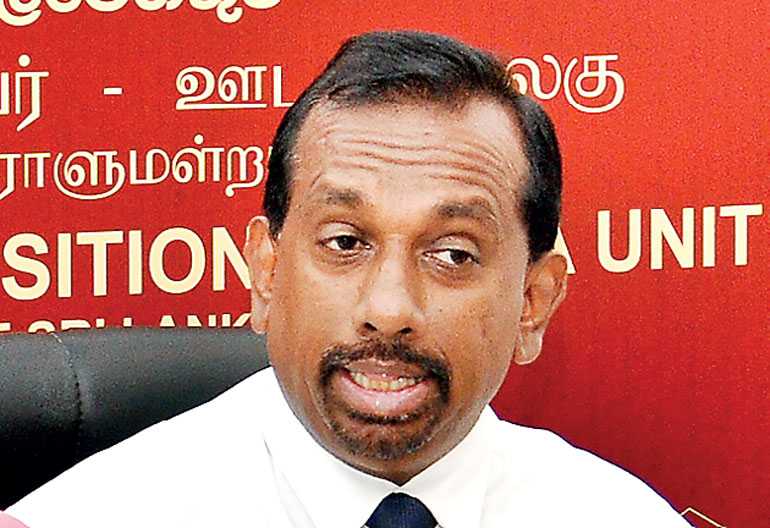Saturday Feb 28, 2026
Saturday Feb 28, 2026
Thursday, 28 March 2019 01:47 - - {{hitsCtrl.values.hits}}


By Nuwan Senarathna
United People’s Freedom Alliance (UPFA) Parliamentarian Susil Premajayantha yesterday called attention to the severe financial losses faced by the public, especially small businesses that are having their livelihood severely affected by ongoing power cuts and demanded the Government find a solution swiftly.
Premajayantha, who held the Power and Energy ministerial portfolio during the previous Government, charged the Government’s negligence and inability had led to the power crisis and not the prevailing hot weather.
“Businessmen at all levels are affected by load shedding. Most of them were are unable to meet their deadlines due to the power cuts, which might lead to serious losses if this continues. People are losing their livelihoods, but this Government does not care,” Premajayantha told reporters at the Opposition Leader’s office in Colombo.
Premajayantha said power cuts have affected export-oriented industries such as apparel and tea more. He pointed out that the production process in apparel factories had slowed down and cost of the production had increased as most factories in the sector had to rely on backup power generation and the tea industry was also faced with similar challenges.
Premajayantha also said small-scale businesses, such as grocery stores, were losing out without a place to store their perishables and these losses were not recorded or compensated for.
Emergency power could also result in more fuel having to be sourced from the Ceylon Petroleum Corporation (CPC), which would see higher amounts of public funds spent. “In the end, the public will have to pay the price for this. If the currency depreciates against the dollar, that would affect the public as the prices of all imported goods will go up,” he added.
He also said emergency power purchasing would increase losses for the CEB, which would also have to be paid by the public. “If CEB makes additional losses, then that would have to be paid from the public pocket, too. Therefore this is a chain reaction, where eventually the public has to pay the price,” he added.
Speaking on the cause of the power crisis, Premajayantha said the situation arose due to the Government’s negligence to set up a power generation plan to recognise the rising demand for power and energy.
He said that if the Government had implemented the Kerawalapitiya LNG power plant, power shortages would not have risen, and insisted the Government had had enough time to build the power plant during its tenure.
“They were supposed to commence construction of the LNG plant during 2015, but there were a lot of controversies involved with that project,” he added.
Even if the Government sets up a Floating Storage Regasification Unit (FSRU), Premajayantha said it should have been done earlier when the constructions of the LNG plant was delayed, insisting that if the Government had had a strategic plan, the crisis would have never happened. However, Premajayantha did not reject the idea of using FSRU as a short-term solution.
Pix by Ruwan Walpola